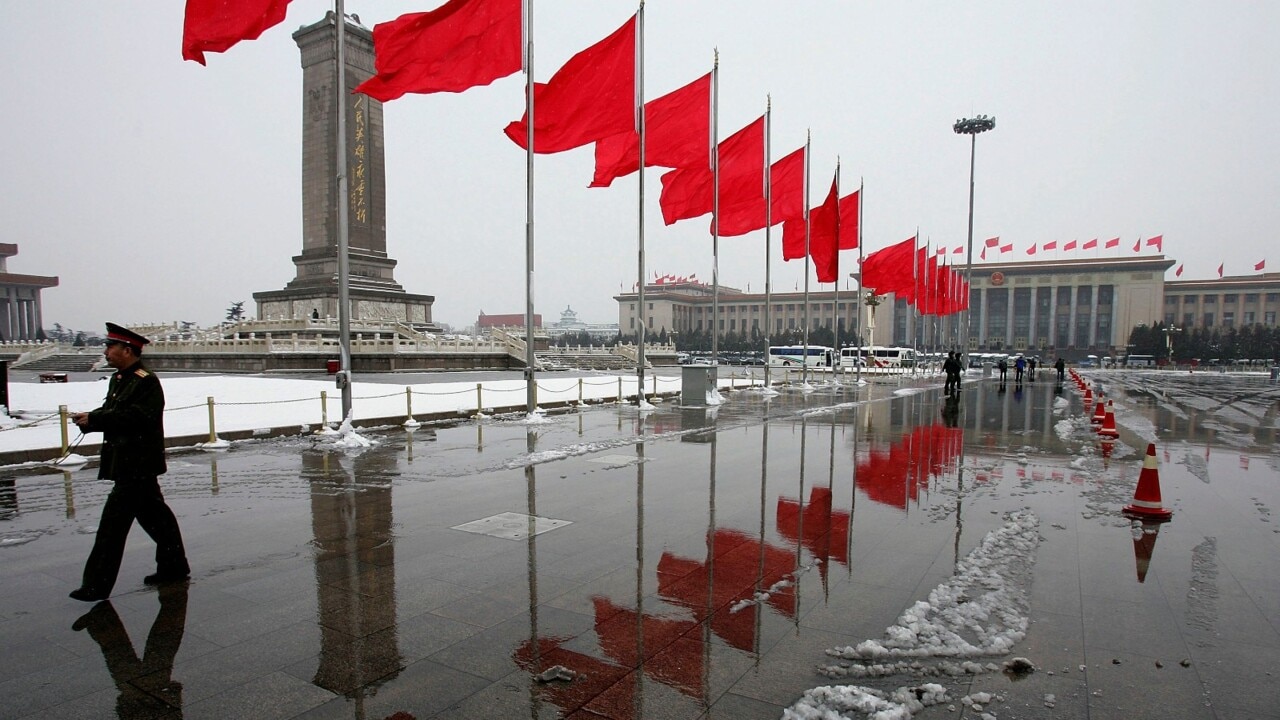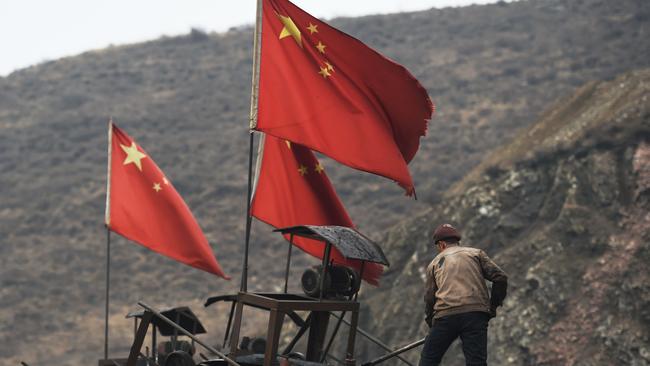$1bn in coal stranded by China can’t be sold
More than $1bn worth of Australian coal stranded off the coast of China has lost most of its value and can no longer be sold to alternative buyers.

Over $1bn of Australian coal stranded off the coast of China has lost the bulk of its value and can no longer be sold to alternative buyers, the latest blow to one of the nation’s biggest export earners.
Beijing in January instructed the owners of the banned Australian coal to find new buyers outside of China, as Xi Jinping’s administration scuttles the $14bn export trade and ramps up pressure on the Morrison government.
However, ASX-listed Coronado Global Resources said the coal has been stuck offshore for so long that its value would have plunged and selling it to rival destinations was no longer a realistic option. Some of the 70 vessels laden with Australian coal have been stranded since June.
The flotilla “has not moved, so it‘s clearly a boycott,” Coronado chief financial officer Gerhard Ziems told The Australian. “I don’t believe the Chinese are selling these cargoes to anyone else and now it’s too late because the coal deteriorates over time. So I don’t think they will find a lot of buyers.”
“It loses a lot of qualities and moisture starts to set in and you really risk buying a cargo there that you can‘t use. So it’s really an irrational political decision by China and we have to see how long political pressure dominates economic rationalism.”
Coronado slumped to an annual net loss of $US227m ($290.2m), compared to a profit of $US305m in 2019, due to coal supply and price ructions from COVID-19, Australia-China tensions and a fatal accident at its Curragh mine. Its shares plummeted 10.7 per cent on Friday to $1.08.
The new Chinese orders have been a huge blow to Australia’s third biggest export industry, which had hoped the ban would be lifted in the new calendar year as China reset its informal import quotas.
Coronado supplies little coal to China but closely monitors the situation, given its influence on global pricing, and said there had been little sign from Canberra of the ban ending.
“I was in Canberra last week and the senators and ministers I spoke to, the sentiment was the China boycott might last a while,” Mr Ziems said.
Still, he expects economic reality will eventually see China buckle with Beijing paying US producers double the price that Queensland and NSW producers are receiving for their supplies in international markets.

“They are under economic pressure and at the moment they’re just exposed to a political decision which has led to this messy arbitrage. The steel mills are also designed for Australian coal — it’s almost like you have a high performance car engine that requires high octane fuel and now the steel mills are forced to put E10 in there,” Mr Ziems said.
“It just doesn’t make sense. It’s very political and I don’t think it can last a year, I don’t think it can last another six months. But at this stage we can see the political pressure is bigger than the economic pressure.
Coronado — which runs the Curragh mine in central Queensland — has been able to keep supplying Chinese steel mills through its US mines at prices topping $US200 ($255) a tonne, compared with half that for Australian supplies.
Beijing’s ban has sparked a massive shift in trade flows for coal.
Australia has been forced to find new markets in distant Europe while US producers have pivoted to China, lured by giant profits on offer.
Australian producers are fetching about $US130 a tonne for metallurgical coal in the early part of 2021 but China is still paying rival suppliers $US180 a tonne after stripping out shipping costs.
“So you’re looking at $US50-60 per tonne. It’s still massive,” Mr Ziems said.
Canada’s Teck Resources has been another North American producer diverting spot cargoes to China to take advantage of short-term pricing.
Separately, Queensland’s Dalrymple Bay Coal Terminal said no shipments of coal have been sent to China since the middle of November as it slumped to a $113m annual loss, in line with prospectus forecasts.
Exports to China from Dalrymple Bay, which handles a third of Queensland’s coal exports, fell 13 per cent to 14.5m tonnes for the 2020 financial year.
The terminal’s exports handle production from nearly 20 mines and are dominated by metallurgical coal, used for steelmaking, with thermal coal accounting for less than a fifth of supplies.
Dalrymple Bay Coal Terminal’s hefty loss was just ahead of a $115m loss forecast in its prospectus and attributed to $129m of IPO costs. Revenue was $23m, lower than a $38m estimate in its prospectus.
The company floated on the ASX on December 8 but has seen its share price languish, closing up 1 per cent at $2.10 on Friday compared with its $2.57 listing price.


To join the conversation, please log in. Don't have an account? Register
Join the conversation, you are commenting as Logout